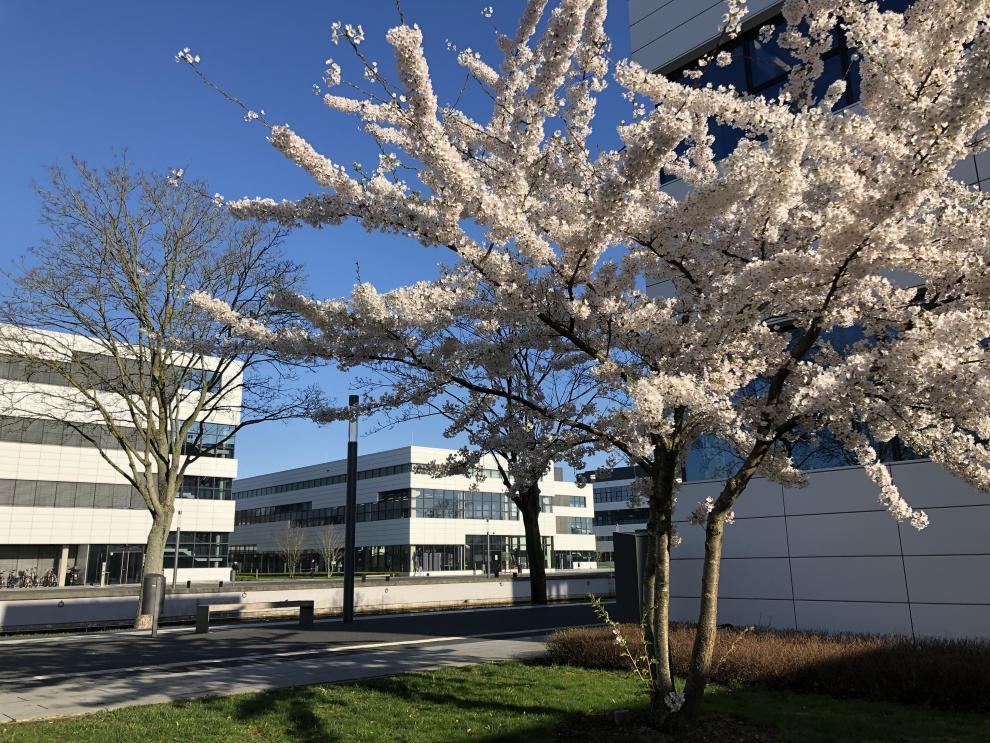Digital summer semester 2020 at Rhine-Waal University of Applied Sciences
The federal states of Germany have agreed that summer semester 2020 can and must take place. Universities will be given more leeway and flexibility to plan the semester to prevent disruptions to their teaching and research activities much as possible. For its part, Rhine-Waal University of Applied Sciences will be offering a wide range of distance learning options for teaching and learning, as well as for examinations.
Summer semester 2020 will definitely be an unusual one. The federal states of Germany, all keen to ensure the semester is not outright cancelled due to the coronavirus pandemic, have jointly decided to empower universities with the necessary conditions to keep teaching and research activities up and running. At Rhine-Waal University of Applied Sciences, preparations have been running at full speed ahead.
“In reaction to the coronavirus pandemic, our summer semester 2020 will be defined by creativity and flexibility, but also concern and dependability for both students and all other members of our University”, explained President Dr Oliver Locker-Grütjen. Together with the state government and research ministry, Rhine-Waal University of Applied Sciences and other higher education institutions in North Rhine-Westphalia will be offering students a wide range of online options for teaching, learning and examinations. Depending on their individual circumstances, students can choose which offers to prioritise and thus earn credits towards their degree.
“We assume at the moment that the summer semester 2020 will not be counted towards a student’s semester tally, and that this will apply to all universities in Germany. In other words, students will be able to earn credits towards their degree, but the semester itself will not count towards the number of completed semesters,” said President Locker-Grütjen. To ensure a broad availability of modules, Rhine-Waal University of Applied Sciences will continue to hire sessional lecturers and student support staff as much as possible.
Nevertheless, Rhine-Waal University of Applied Sciences is still hopeful that it will be able to host students again on campus sometime after the Easter holidays, perhaps through blended learning, i.e. partial presence teaching in addition to a distance learning component. For Rhine-Waal University of Applied Sciences, this would be a significant step forward in establishing more flexible learning options across the board, as not all academic requirements can be done online. This applies particularly to labs, practical exercises, seminars and workshops. Many other teaching contents are also based on hands-on learning, interaction and application.
“Naturally, there is still a lot to learn, build and tweak the semester officially starts on 20 April. We will have to stay flexible and adjust to the situation day by day,” said President Locker-Grütjen, adding: “Despite the opportunities of distance learning, Rhine-Waal University of Applied Sciences is and will always remain a university that prioritises on-campus learning environments for smaller groups. Face-to-face communication and local integration are key to the unique international and intercultural experience we offer.”

